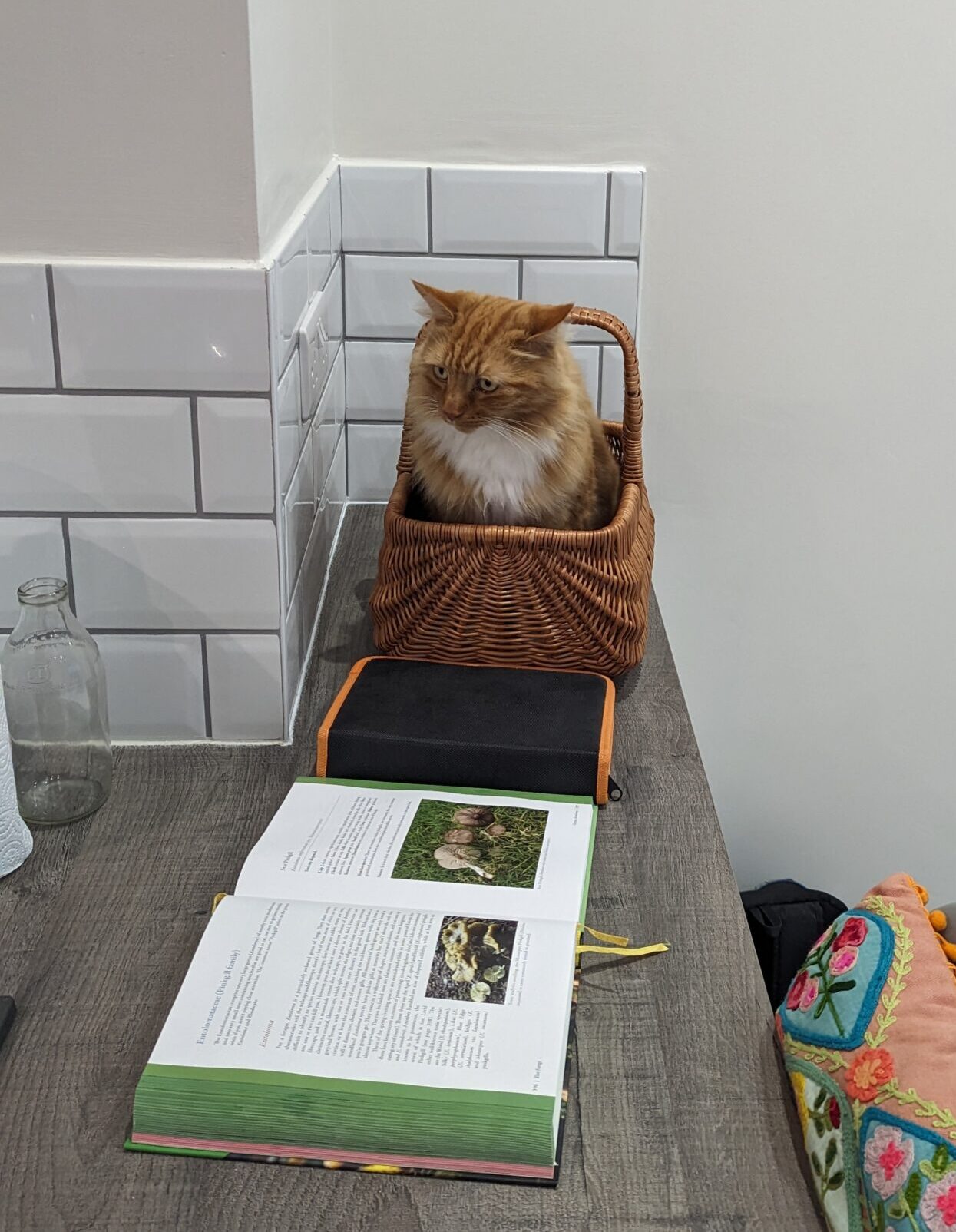Now, where were we…? Ah yes – It’s Risky Business!
As I mentioned at the end of Part 1, even with the perfect setup – such as you lounging on a beach while tenants pay to live in your home – there are still some awkward factors to consider. Some things are out the realms of your control, but being aware of them will help you make the decisions about your rental plans.
Stubborn Tenants.
The first and most common concern, is the possibility that your tenants might not vacate the property when you need them to. While I’m not an expert on all the legal ins and outs, I do know that it can be quite difficult to evict someone if they don’t feel like leaving! Sadly, this is an unavoidable, inherent risk… But, you can reduce it by being picky about your tenants. For instance, you should ask for details about their plans for the end of the tenancy. Then it’s over to you to decide whether their answers seem credible. We had a few interesting ones, including a family who were turning a dilapidated stone barn into house in a nearby village… Six months to build a house?! We’ve seen Grand Designs, so we did not buy that!

Crappy Tenants.
Another unpleasant reality is that, even if you are selective, you might still end up with problematic tenants who cause damage, disturb neighbours, or engage in unsavoury activities. During our would-be landlord journey, we heard plenty of horror stories from others… Again, there’s no fool proof way to completely eliminate this risk. However, putting effort into the ‘groundwork’ can pay off in the long run. As greedy as it may sound, a higher-priced rental property is more likely to attract professional tenants with stable, well-paid jobs. And, dare I say, location plays a role too – renting out a home in the Cotswolds versus ‘lovely’ Birmingham is quite… let’s say, ‘different’ (sorry, Birmingham! I’ve lived in both, so I’m allowed to compare!)
Escapee Tenants.
The final tenant related pain to consider, though hopefully not, is the possibility of an extenuating circumstance causing your tenant to break the agreed contract. This could leave you feeling rather peeved, with a mortgage-sized hole in your monthly budget, and that’s a lot of beach cocktails and street food to miss out on! To minimise possible stress, it’s wise to have a contingency fund or ‘safety net’ set aside in case you find yourself facing this nightmarish situation.
Alternatives to Renting: Other Sabbatical Solutions
If all of that has put you off the idea of renting out your house, I don’t blame you! It can be a bit of a pain in the derrière and definitely requires perseverance. But don’t worry, even though it can undoubtedly offer a neat, self-contained solution for your sabbatical, there are other options. Each comes with its own pros and cons, which I’ll briefly touch on. That said, we didn’t pursue any of these alternatives, so my knowledge here is even thinner than usual… Though, not as thin as my hair! (Boom – mandatory baldness reference complete).
You could just do nothing.
Literally, you could leave the house empty for the duration of your trip. This is a great option if you can’t stomach the idea of having some random muggles in your home… After all, they might disrupt the perfectly curated aromatic bathroom-stench, or ruin that hard-earned dent in your sofa, right?
Sure, there are obvious advantages to doing nothing. Like, no risk of extra wear and tear, no complaints from the neighbours, and zero chance of tenants overstaying their welcome! But, as always, there are downsides to consider too…
1. If you still have a mortgage, obviously you’ll need to keep making the payments. Also, if you didn’t know, you’ll have to keep covering the ‘standing charges’ for your utilities. Supposedly, these go toward maintaining the ‘infrastructure’… Though I’m not sure I’ve ever seen any actual ‘maintenance’ happening!
2. With the house sitting empty for several months, who’s going to notice if a pipe starts leaking, wasps take over the attic, or squatters move in? Essentially, you’ll need someone to drop by and check on things periodically.
3. Similarly, if you’re away during the colder months in the UK, you definitely don’t want your pipes freezing. Someone will need to stop by to turn the heating on occasionally – which means more bills to cover.
4. Lastly, and most importantly, you’ll have less money to spend on beach bungalows, beers, and souvenirs… and that is definitely not okay at all!

How about Air BnB?
You could list your property on Airbnb, especially if you’ve done the groundwork and your location is desirable. The big advantage here, is that daily rates can be significantly higher than those of traditional rentals. We worked out that if we had someone in our house for just half the month, we’d earn the same amount as a full rental would! Plus, you avoid estate agents and eliminate the risk of tenants overstaying. However, as you might expect, the grass isn’t always greener, and there are a few things to ponder…
1. Are you going away during the winter months like we are? If so, demand for Airbnb holiday rentals during the ‘delightful’ British winter is likely to decrease – even in a desirable location!
2. Your income can be unpredictable. There may be months when bookings are totally pants, meaning you won’t make as much as you would like. This would make it impossible to rely on any income your place generates!
3. You’ll need someone to manage the property while you’re away, including cleaning between guests and handling bookings. If you don’t have friends or family to help, you’ll need to hire a management company, which can charge over 20% of your rental fee! In comparison, estate agents typically take 15% or less.
Rent out your rooms – house share!
This could potentially be a very lucrative option, especially if you can convert your house into what is essentially a mini hotel! Just add a bed in every room (maybe not the bathroom), slap some locks on the doors, and voilà! In our area, a double room could bring in up to five hundred pounds a month! Sounds like an easy win, right? Well, annoyingly, even this option comes with some issues that put us off the idea…
1. As we discovered, finding tenants for a short-term lease can be tricky even at the best of times. This option requires you to do it multiple times, which depending on your area, may be rather tricky!
2. You will still need someone to manage the property. Estate agents can handle this, but I’m not sure how their fees differ for this kind of tenancy.
3. You probably have just one kitchen and a couple of bathrooms (actually, we only have one bathroom), which means these spaces will experience heavy use while you’re away. If you end up with a particularly unsociable group of tenants, your poor oven could end up cooking four or five individual meals every night… It doesn’t even bare thinking about your poor throne room!
4. There are legal ‘minimum living requirements’ you must adhere to with this type of letting; including fire doors, fire blankets, utilities, and more.
5. How do you plan to handle the bills? Will you rely on the tenants to split them amicably?
6. Consider whether your area’s internet infrastructure can support a house full of professionals or students who might work from home regularly. Our area has ‘Gigaclear fibre,’ but it’s hella-expensive!
7. Parking… What happens when a small car park’s worth of vehicles descends on your neighbourhood? Expect scuffed bumpers and chaos!
As you can see, this option comes with a lot of prerequisites. We just couldn’t feasibly meet some of them, while others were going to be a total faff!
Lend it out to family or friends.
Lastly, although this option wasn’t available to us, it might work for some people, so it’s worth mentioning! Imagine having a trustworthy person to man your fort while you’re away – it would be so convenient and stress-free, right? While it might not be the most financially beneficial choice, it could provide the greatest peace of mind.
Somehow There is Still More: The Final Bits
There are still a few more details to consider, I’m afraid. They’re what I’d call ‘loose ends’ – a bit of housekeeping, a few phone calls, and some admin tasks. While not being too demanding, they can easily slip through the cracks when your mind is filled with travel plans and wanderlust!
Your mortgage (yawn!)
If you’ve still got a nice hefty mortgage, you’re probably planning to return from your travels before it’s up for renewal! However, for those who didn’t know, short-term letting might breach some of those endless mortgage T&Cs, so it’s crucial to get your bank’s ‘official permission’. For us, this involved filling out a few forms and physically mailing them to our bank (yes, actual analogue mail in this day and age!). They just needed details on the letting dates and our reasons for doing so. Initially, our application was rejected because our dates weren’t specific enough – so be warned, you might need to be accurate within a week.

Your insurance (more yawning…)
Landlord insurance isn’t a legal requirement in the UK, but be careful – your standard home insurance won’t cover you while you’re off trekking through jungles, dodging snakes, and gawping at fluorescent butterflies! If your house gets burgled or damaged while rented out, your usual policy won’t cover anything. After shopping around, I found it easiest to stick with my current home insurance provider. The process was straightforward; just provide the transfer date for the insurance and settle any outstanding fees on the old policy.
Have a natter over the fence!
Apologies if this seems painfully obvious, but if you’re not close with your neighbours, it might slip your mind… We once had neighbours who, on the face of it, seemed like perfect buddies for us – around our age, outdoorsy, and into countryside living. Yet, our interactions were limited to awkward nods and polite(ish) grunts in passing… a bit odd, I’ll admit. But my point is, you could forget to inform them of your plans. If you don’t, they might get spooked seeing strangers in your home! Or worse, befriend your tenants and hatch an evil, elaborate scheme to keep you out of your home forever!
You won’t need it while you’re gone, but don’t forget your wheels.
I like cars, they’re convenient, time-saving, pretty much essential, and making them is how I earn my living! But they are also large, hard to store, and don’t take kindly to being neglected for long periods of time. So, how do you plan to deal with your car while you’re traveling?
If you have a garage, you could exclude it from the rental agreement, store your car there, and ask a neighbour to start it up occasionally. It can also double as extra storage – just pack as much crap in there as possible, like a game of Tetris. Or, if you’re not too attached to it, another option is to simply get rid of it; sell it, scrap it, or lend it to someone you trust. There are plenty of options, just don’t forget about it!
Direct debits (back to yawning.)
This is gonna sting, but you need to set aside some time to go through your bank statements properly. Just make sure your mind is well-rested and have a large glass of wine at the ready!

You need to review everything coming out of your bank account via direct debit. I’m talking gym memberships, charity donations, Netflix, phone contracts, finance payments, and so on. Then, figure out which ones you can freeze while you’re away, which you can cancel, and which need to stay active. It’s a drag, but if you manage to get through this without losing the will to live, you’ll be better off for it – I promise!
Junk mail mountain.
This one nearly slipped under our radar! But, to prevent your tenants from receiving an ever-growing pile of unwanted fan mail (or “Screwfix” leaflets and final warnings about your TV license), you’ll need to have it all redirected. The Post Office offers this service for a fee: Post Office Mail Redirection.
Of course, an even better option is to contact as many companies and people as possible to request going paper-free! I understand it might be a bit of a hassle, and you would also have to find somewhere else to get random paper to start up your fire pit…
Random stuff.
Bins – gotta love them, right? It might sound strange, but where we live, you practically need a PhD to figure out the bin system. We have about seven different receptacles collected at various times every two weeks, and some even require a separate license for pickup. So, if this applies to you, make it as easy as possible for your tenants by ensuring all the necessary licenses are in place for the duration of your trip!
Estate fees – do you have additional estate management fees where you live? We do, and although it’s just a small annual fee, it will be up for renewal while we’re away. So, it’s crucial to plan how to handle this before your departure. In our case, I’ll be settling up in advance!
Time to Sum Up This Riveting Epic
I may have missed a few things, but I reckon this covers the majority of the issues you might encounter. It might seem a bit overwhelming, but don’t let it daunt you, the main takeaway from all this (back in Part 1) is to stay sharp when dealing with the devil himself… I mean, your estate agent! Also, if you’re still at the very beginning of your sabbatical plan, try to lay the groundwork early. Consider the location of your property, what work it needs, and what type of letting you might want to pursue.

Finally, although I may not have emphasised this throughout the blog, be sure to prioritise your experience while on the sabbatical! After all, your trip is the main purpose of all this effort and should be protected above all else. For us, this meant ensuring our mortgage was fully covered, the house was occupied, and all responsibilities were minimised while we were away. Then, any extra spending money was just a bonus! So, keep this perspective in mind and choose the best options for your sabbatical. Good luck!
Stay bald folks.
Toodles,
Jack



